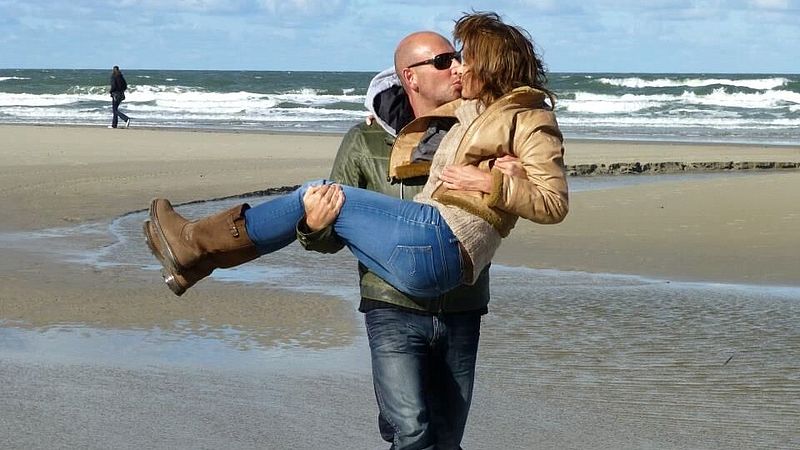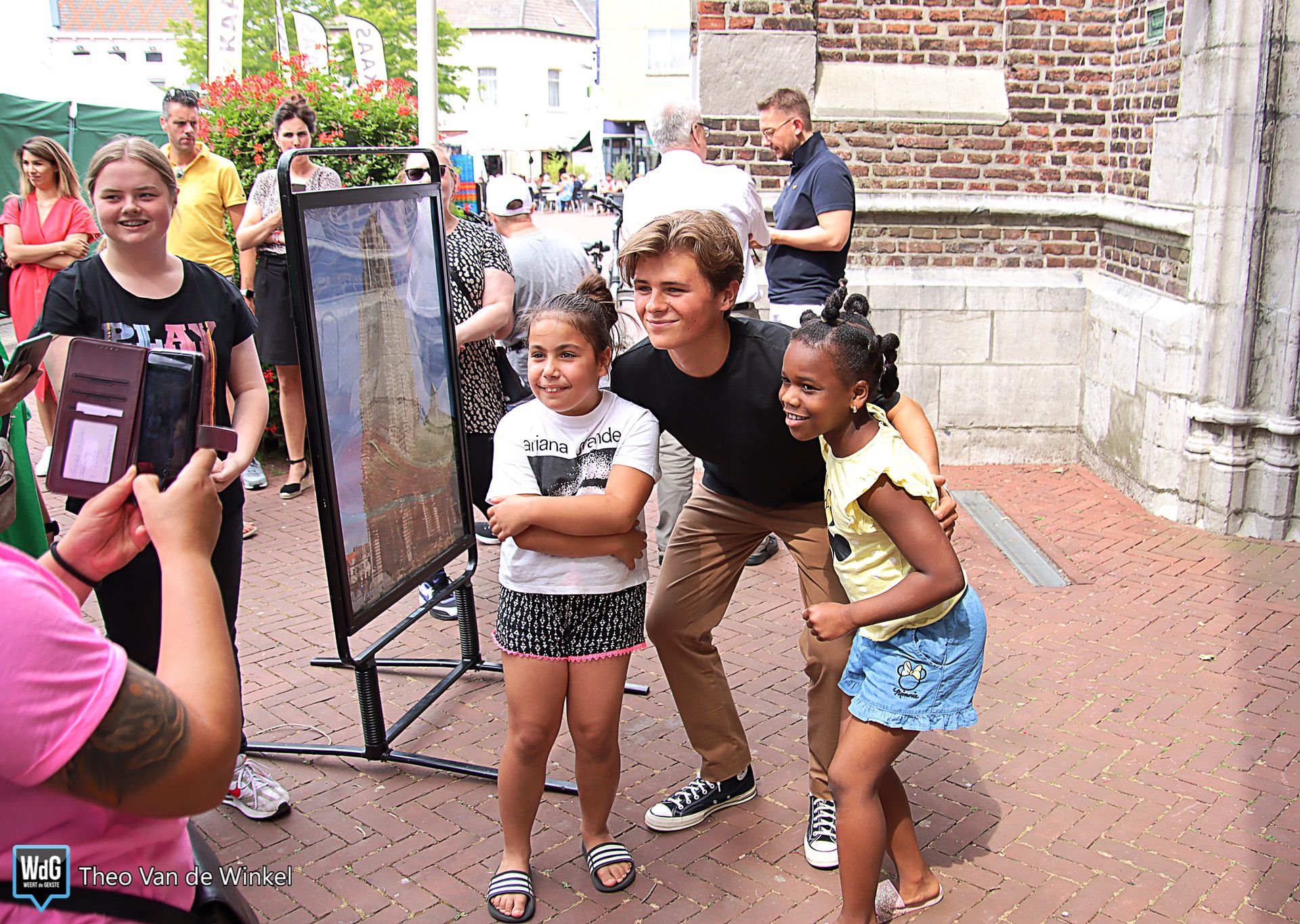When his partner Hester was diagnosed with Alzheimer’s at a young age, Ton discovered that there is still much room for improvement in dementia care. Hester recently passed away. Now Ton wants to help ‘other Hesters’. “I want to change healthcare in the Netherlands.”
“I may have to put the phone down for a while. They are coming to pick up Hester’s hospital bed today, which is still in the living room.” Ton’s voice breaks audibly. He’s still a bit emotional, he apologizes. But who wouldn’t be, 2 days after a life partner’s funeral?
Burnout symptoms
“We had known for over 5 years that this moment was coming. I honestly expected that a burden would be lifted off my shoulders, but it actually isn’t. It’s more of a hole. Literally, when her bed is soon picked up.” Yet Ton is also somehow relieved that the room will soon be ‘just’ a living space for him and the children again.
5.5 years ago, Hester, then 50 years old, was diagnosed with Alzheimer’s. A disease that she – and her environment – until then mainly associated with ‘older’ people. “Afterwards, she started showing the first symptoms in her 40s, burnout symptoms, major changes in her character. But that was only linked to Alzheimer’s much later.”
‘I didn’t know you were going to die’
“Hester was so relieved after the diagnosis,” Ton recalls. “‘See, I’m not crazy!’ she said. Very understandable, of course, if you haven’t felt taken seriously for years. I was relieved too, until I learned that you are dying from this disease. I didn’t know that.”
In fact, the mental preparation for the farewell that would take place on July 23, 2022 already started. But he didn’t have much time for that, because Hester was still alive and soon needed more care. Ton took on the role of caregiver.
Dementia at a young age
Dementia at a young age usually starts between the ages of 40 and 65. In the Netherlands, an estimated 15,000 people with dementia are younger than 65 years of age. The signals are often not recognized. More than problems with memory, changes in behavior or language are most noticeable in this group of people.
However, relatives and professionals often do not immediately link this to dementia. Often the first thought is a burnout or depression. Dementia at a young age is difficult to diagnose, so the uncertainty often lasts a long time. source: Alzheimer Netherlands
–
–
‘Everything is more expensive’
Something that immediately struck him when he started caring for Hester, was that all products labeled ‘Alzheimer’ or ‘Dementia’ were very expensive. “For example, I saw online that dementia clocks (tuned to the visual field of someone with dementia and written out with the day and part of the day, ed.) can hardly be obtained under roughly 50 euros.”
And that while being able to tell the time, not having to ask what day it is, contributes to the self-reliance of someone with Alzheimer’s or another form of dementia. Ton was and is sure of that.
Resigned
This was one of the reasons for him to quit his job in the corporate world two years ago and to set up the company TimeSteps together with Tim van Santen, then still a master’s student in Health Innovation. They found an investor via Facebook and they have now built an app containing a digital clock for people with dementia.
The app is free and so is the dementia clock in it. And that will remain the case, Ton emphasizes. “That’s the point, that you don’t have to buy something expensive just because you’re sick. I saw with Hester – and also with others with Alzheimer’s – that they are busy with their mobiles all day. is your only support if you need help and there is no one directly nearby. So: focus on what someone can still do and support that with technology.”
–
‘Knowledge difficult to access’
In addition to the high costs, there is another aspect of dementia care where Ton sees an opportunity for improvement. “Hester moved to a care home almost 3 years ago. We didn’t really want that, but we had the idea that there was no other way. With today’s knowledge, I find that very painful. information at my disposal.”
He refers to the fact that there is a great deal of knowledge in the Netherlands, for example about the adjustments you need to make at home to keep a loved one with Alzheimer’s at home longer. But that it is poorly accessible and not centralized. Governments could do that much better, thinks Ton. “As a caregiver, you are six-zero behind when you start: you have no knowledge and no time to figure it all out.”
Technology as a means
“There are so many local and national ‘buddy projects’ and volunteers,” continues Ton, “but I noticed that in my hometown of Ede, for example, I didn’t know at all how and where I could find a volunteer who could walk with Hester when I was working. Here too, there was indeed information, but I had no idea where to look and didn’t really have time for it.”
He believes it would be very helpful if end users – informal caregivers and people with dementia – were much more involved in the development of digital environments and other information. Because, according to Tom, this happens far too infrequently, he developed an app for informal caregivers together with informal caregivers from all over the country. “And in the end, that technique is just a means to enable more quality of life during the time you have left together.”
also watch
Love, love and more love
And then Ton pauses for a moment, he swallows audibly. “Hester is my source of inspiration in everything I do. I myself do not come from a warm family. I was not taught to express my feelings at home, but Hester felt it flawlessly when something was wrong.”
“Hester gave love, love and more love. Could listen unconditionally and liked to color outside the lines. Looked at what was possible. I always carry that with me.”
–


